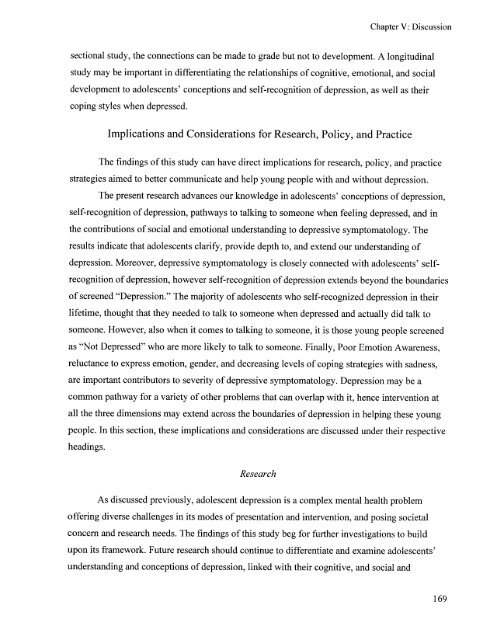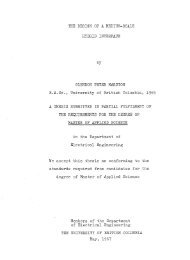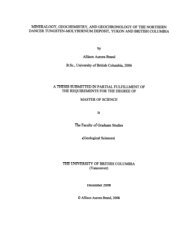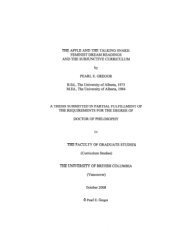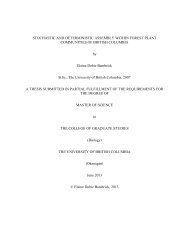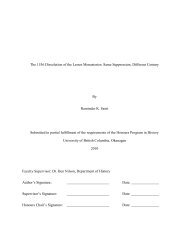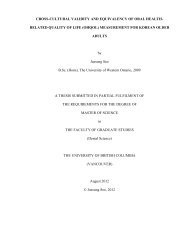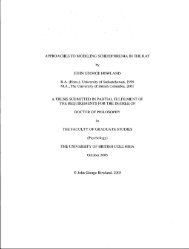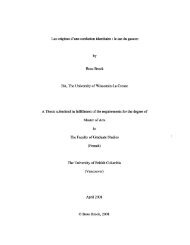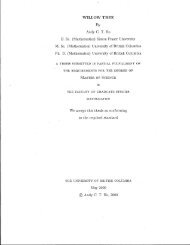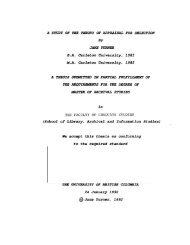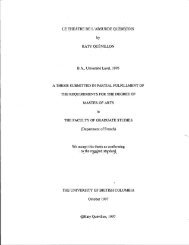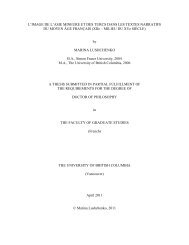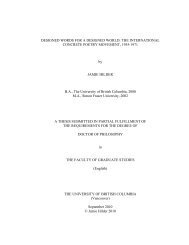how do adolescents define depression? - cIRcle - University of ...
how do adolescents define depression? - cIRcle - University of ...
how do adolescents define depression? - cIRcle - University of ...
Create successful ePaper yourself
Turn your PDF publications into a flip-book with our unique Google optimized e-Paper software.
Chapter V: Discussion<br />
sectional study, the connections can be made to grade but not to development. A longitudinal<br />
study may be important in differentiating the relationships <strong>of</strong> cognitive, emotional, and social<br />
development to a<strong>do</strong>lescents' conceptions and self-recognition <strong>of</strong> <strong>depression</strong>, as well as their<br />
coping styles when depressed.<br />
Implications and Considerations for Research, Policy, and Practice<br />
The findings <strong>of</strong> this study can have direct implications for research, policy, and practice<br />
strategies aimed to better communicate and help young people with and without <strong>depression</strong>.<br />
The present research advances our knowledge in a<strong>do</strong>lescents' conceptions <strong>of</strong> <strong>depression</strong>,<br />
self-recognition <strong>of</strong> <strong>depression</strong>, pathways to talking to someone when feeling depressed, and in<br />
the contributions <strong>of</strong> social and emotional understanding to depressive symptomatology. The<br />
results indicate that a<strong>do</strong>lescents clarify, provide depth to, and extend our understanding <strong>of</strong><br />
<strong>depression</strong>. Moreover, depressive symptomatology is closely connected with a<strong>do</strong>lescents' self-<br />
recognition <strong>of</strong> <strong>depression</strong>, <strong>how</strong>ever self-recognition <strong>of</strong> <strong>depression</strong> extends beyond the boundaries<br />
<strong>of</strong> screened "Depression." The majority <strong>of</strong> a<strong>do</strong>lescents who self-recognized <strong>depression</strong> in their<br />
lifetime, thought that they needed to talk to someone when depressed and actually did talk to<br />
someone. However, also when it comes to talking to someone, it is those young people screened<br />
as "Not Depressed" who are more likely to talk to someone. Finally, Poor Emotion Awareness,<br />
reluctance to express emotion, gender, and decreasing levels <strong>of</strong> coping strategies with sadness,<br />
are important contributors to severity <strong>of</strong> depressive symptomatology. Depression may be a<br />
common pathway for a variety <strong>of</strong> other problems that can overlap with it, hence intervention at<br />
all the three dimensions may extend across the boundaries <strong>of</strong> <strong>depression</strong> in helping these young<br />
people. In this section, these implications and considerations are discussed under their respective<br />
headings.<br />
Research<br />
As discussed previously, a<strong>do</strong>lescent <strong>depression</strong> is a complex mental health problem<br />
<strong>of</strong>fering diverse challenges in its modes <strong>of</strong> presentation and intervention, and posing societal<br />
concern and research needs. The findings <strong>of</strong> this study beg for further investigations to build<br />
upon its framework. Future research should continue to differentiate and examine a<strong>do</strong>lescents'<br />
understanding and conceptions <strong>of</strong> <strong>depression</strong>, linked with their cognitive, and social and<br />
169


